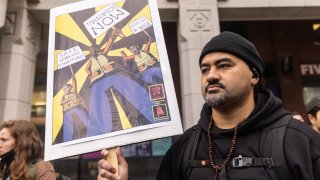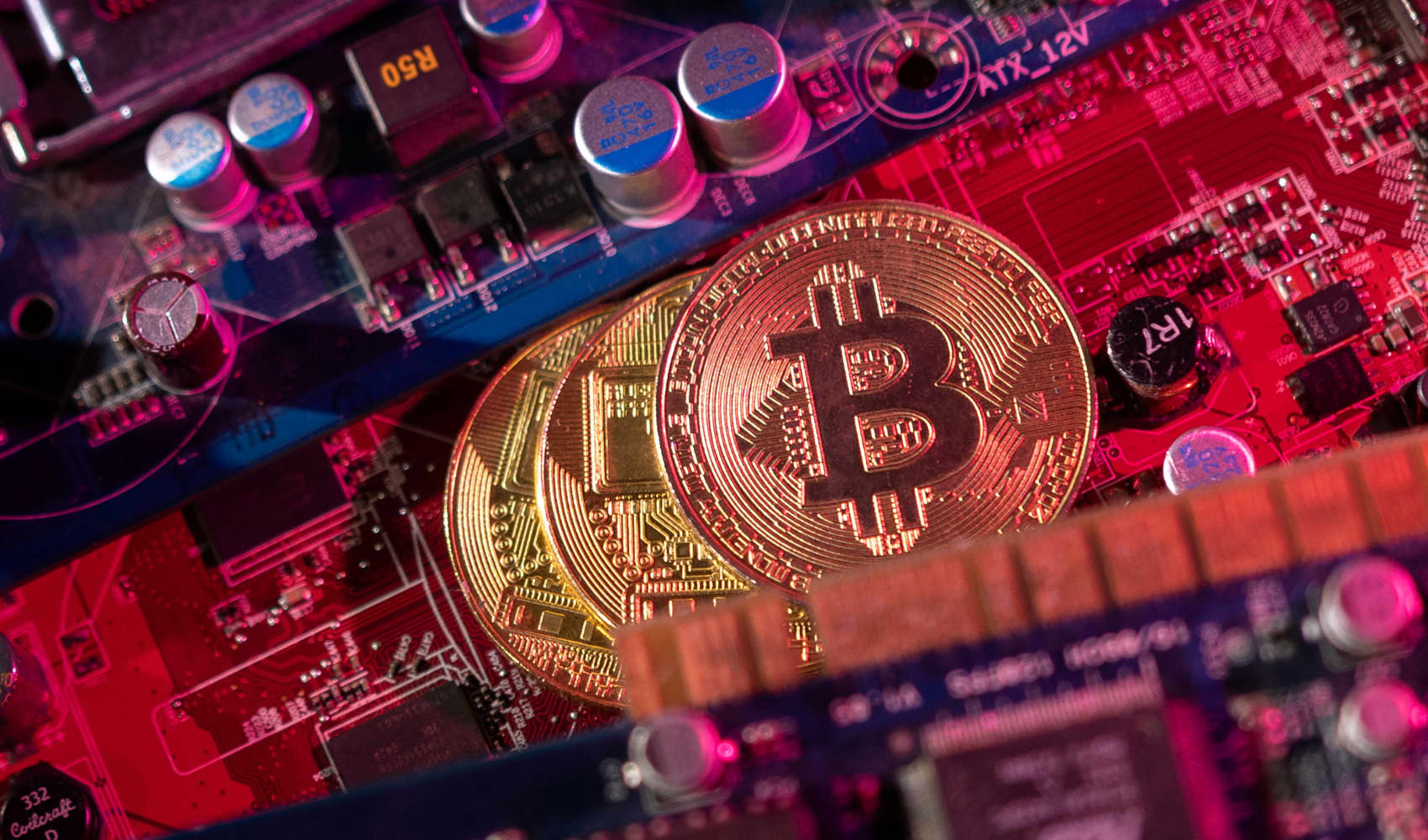
- Amazon workers at a Staten Island warehouse voted to unionize, the first time that's happened at one of the company's U.S. facilities.
- The Amazon Labor Union, which is a new organization, now has to get to work trying to negotiate a collective bargaining agreement with Amazon.
- Tom Kochan, a professor at the MIT Sloan School of Management, said "Amazon is going to have to reassess its labor relations strategy."
Amazon workers on New York's Staten Island just made history, becoming the first group to vote in favor of unionizing at a U.S. facility operated by the country's largest e-commerce company.
After a hard-fought battle, the result is a major defeat for Amazon, which has used all of its might to keep organized labor off its premises. As of Friday, the tally at the Staten Island warehouse, known as JFK8, was 2,654 votes in favor of joining the union and 2,131 opposed, with 67 ballots being challenged.
The fulfillment center doesn't flip to becoming a union shop overnight, and there's potentially a long road ahead. But the wheels are in motion for change.
Feeling out of the loop? We'll catch you up on the Chicago news you need to know. Sign up for the weekly Chicago Catch-Up newsletter here.
Here's what happens next:
Delays, challenges and negotiations
The Amazon Labor Union didn't even exist until last year. Now, the grassroots organization that relied on a crowdfunding campaign to fund its organizing is responsible for negotiating a collective bargaining agreement on behalf of roughly 6,000 employees at Amazon's largest fulfillment center in New York.
Money Report
The ALU is led by Christian Smalls, a former JFK8 manager, who was fired by Amazon in 2020 after the company claimed he violated social distancing rules.
Rather than getting to dictate pay, benefits and working conditions as it does across its massive network of offices, data centers and warehouses, Amazon will now have to negotiate those key details with union leadership when it comes to JFK8.
Contract talks between the ALU and Amazon could start soon. But don't bet on it.
"Amazon will delay," said David Rosenfeld, a labor lawyer at Weinberg, Roger and Rosenfeld, and a lecturer at the University California at Berkeley School of Law. "They’re not going to walk in and do the right thing because that will encourage organizing everywhere else. They'll do everything they can to avoid a contract, and it will be a big, long, nasty fight."
According to an analysis published in June by Bloomberg Law, it takes on average 409 days for CBAs to be signed between employers and their newly unionized workers.

If the goal is delay, Amazon has unlimited resources to hire the top lawyers and consultants. The company has already expressed its disappointment with the outcome and said it's considering its options, including "filing objections based on the inappropriate and undue influence" of the National Labor Relations Board. Amazon didn't specify instances of improper meddling, but said the National Retail Federation and Chamber of Commerce witnessed the same behavior.
Either Amazon or the union can raise objections over conduct during the election. Both parties have left that door open. Any objection must be filed to the NLRB regional office by April 8. The agency will investigate the claims and, if there's sufficient evidence, will schedule a hearing where each side can present its case.
Challenges don't have to end there. If they're unhappy with the regional director's ruling, either side can escalate its complaint to the NLRB board in Washington.
Why wait?
Precedent is Amazon's principal concern. JFK8 is one of 100-plus Amazon fulfillment centers in the U.S., and there are many truckers and delivery drivers who aren't part of those facilities. Workers in Bessemer, Alabama, just wrapped up a second vote on whether to unionize, and while the effort appears to have failed again, the count was significantly closer than the first contest last year.
Amazon has no interest in seeing the movement gain further momentum. And the company says there's no need for that to happen. Pay at fulfillment center starts at $18 an hour, well above minimum wage in every U.S. state. Amazon also offers health insurance, paid parental leave and educational opportunities.
That sort of package has proved enticing to many workers, particularly in parts of the country where older industries have died out and well-paying blue-collar jobs are scarce. But Amazon's warehouse model isn't built on retention. As The New York Times reported last year, the company has adjusted to a pattern that involves extremely high employee churn.
As it stands, Amazon gets to control everything. If employees are unhappy, they can walk out the door. Adding a union to the mix changes that dynamic completely, because employees get bargaining power and a seat at the table.
Amazon has the opportunity to embrace that reality, said Anastasia Christman, a senior policy analyst at the National Employment Law Project in New York.
"They have this choice they can make," Christman said. "They can either decide to continue to fight this in a very negative way or say that workers have identified problems in the workforce and let's hear them out."
While the enforcement mechanisms facing Amazon may be limited, public pressure is growing and the labor movement is gaining support.
Starbucks baristas in several locations have voted to unionize, and in late March Google Fiber contractors in Kansas City, Missouri, supported a union effort, becoming the first workers with bargaining rights under the Alphabet Workers Union.
Vermont Sen. Bernie Sanders tweeted his congratulations on Friday after the Amazon vote and said "it's going to be a shot in the arm for this country's labor movement."
Amazon has thrived for almost three decades without the presence of unions in its U.S. operations. But in the last few years, the company has drawn the ire of politicians and regulators for alleged anti-competitive behavior, paying little in taxes and mistreating workers.
This may be a time for the company to play nice and avoid a protracted battle, said Tom Kochan, a professor at the Massachusetts Institute of Technology's Sloan School of Management.
"I would expect now that there is this first victory on the part of a union that Amazon is going to have to reassess its labor relations strategy and begin to negotiate in good faith to reach an agreement," said Kochan, an expert on work and employment policies. "They will add fuel to the flames if they continue to stonewall in negotiations as they have so vigorously resisted in the organizing phase."






